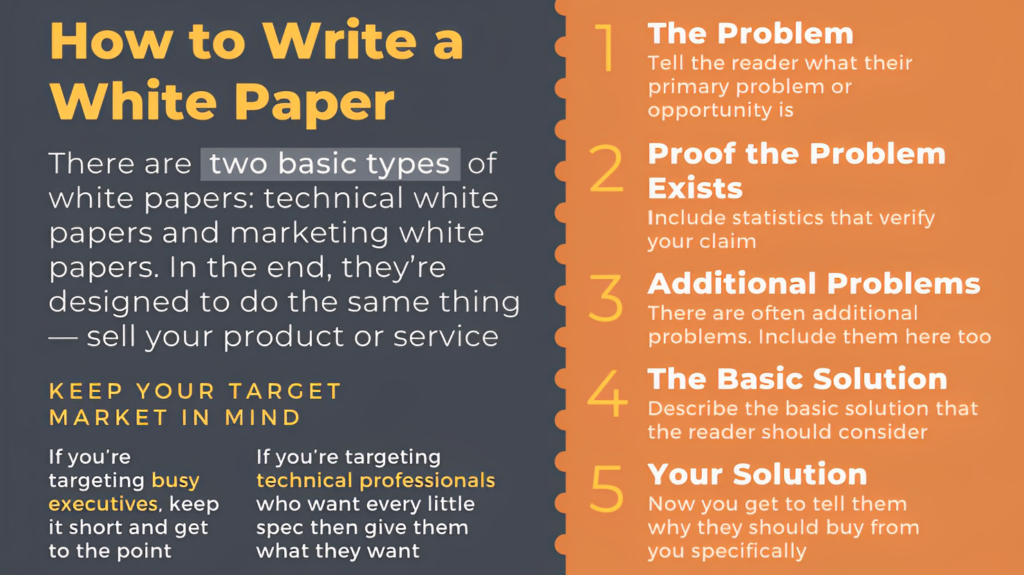
Lead Generation in Singapore with Digital Marketing
What Is Lead Generation?
A lead is a prospect who has shown interest in a company’s products or services and has shared their contact information with the company, such as their email, phone number, or social media account. Lead generation aims to attract and retain potential visitors into leads and convert them into customers and future sales.
Lead generation is an aspect of digital marketing that involves identifying and engaging potential customers with a brand. Companies use various tactics to generate qualified leads, such as offering incentives like discounts or giveaways, using interactive content and campaigns, incentivising customer reviews, or creating targeted landing pages.
Using lead generation strategies, businesses can build relationships with potential customers, gain insights into their preferences, and increase brand awareness and loyalty.
Traditional vs Digital Lead Generation
Lead generation has traditionally involved purchasing a list of names and contacts and having sales representatives cold calling people. Other methods include networking, direct email, and referral networks. However, with the rise of the digital age, companies can now research, target, and understand the needs and wants of potential leads more effectively.
Today, lead generation is done similarly to traditional marketing but with automation and the ability to target thousands of prospects simultaneously. Digital marketing companies use tailored digital marketing campaigns to target qualified leads based on specific criteria and information, making their approach less intrusive to customers.
Modern lead-generation techniques include email marketing software, marketing automation, social media marketing, pay-per-click advertising, and search engine optimisation. These methods enable companies to reach a broader audience, build brand awareness, and generate high-quality leads more efficiently.
Benefits of lead generation
Lead generation is a targeted marketing strategy focusing on finding customers most likely interested in a business’s products or services. By identifying and targeting individuals more likely to engage with subsequent promotions, companies can gain insights into consumer behaviour, receive customer feedback, and develop effective strategies for customer acquisition. This approach to marketing goes beyond making sales; it builds long-term relationships with customers, fostering loyalty and trust.
One of the most significant advantages of lead generation is that it saves time, energy, and money for companies. Using targeted methods, B2B or B2C businesses can avoid pitching to uninterested or unprofitable inbound leads. For example, B2B companies can personalise communication with interested customers through an online survey rather than randomly calling leads. As more companies turn to online channels to reach a broader audience, lead generation has become vital in establishing visibility, credibility, trust, and interest from potential leads.
Lead generation strategies in Singapore
To generate more traffic to an attractive website and convert leads into customers, it’s essential to target the audience accurately by collecting data about their needs and preferences, customising products or services, fulfilling customer demands, and building marketing collateral that resonates with the target audience.
Effective lead generation requires a strategic approach involving tactics to increase awareness and engagement and ultimately move qualified leads through the sales funnel. Digital marketing plays a crucial role in lead generation by providing powerful ways to reach potential customers, deliver personalised messages, and track ROI.
Let’s now explore the marketing solutions used by digital marketing companies in Singapore.
Content Marketing
Content marketing is an effective way to establish leadership. Creating valuable SEO content such as blog posts, product descriptions, and whitepapers builds trust with prospects and positions the company as an expert in the industry. This approach, together with search engine optimisation, helps boost exposure and increase website traffic through search engines.
According to the Demand Gen Report, 96% of B2B buyers seek quality content from industry thought leaders. Producing and sharing expertise through content can bring quality leads. Regularly creating a relevant piece of content that allows industry professionals to engage with quality information. Learn more about their pain points and share detailed guides in exchange for contact information. This allows further lead nurture programs to keep them engaged.
Social Media Marketing
Paid social media channels provide an excellent opportunity to drive potential leads. Platforms such as Facebook Ads and LinkedIn Ads offer precise targeting capabilities to reach the right people with tailored messages about your product or service, ensuring that relevant leads see your ad within seconds of publication.
Create engaging content, target appropriate audiences, and choose the right platform for maximising the impact of social media campaigns. While Facebook is a popular choice due to its large user base, other platforms such as Twitter, LinkedIn, Instagram, and Pinterest offer unique opportunities to reach target audiences.
Local Search Engine Optimization
Local SEO is a strategy for businesses to generate leads and get discovered by potential customers within their local communities. By optimising a website’s content and using localised keywords, search engines like Google can recognise the relevance of a business to local audiences, increasing ranking in organic search results.
According to WordStream, 72% of consumers who perform a local search visit a store within five miles of their location. This highlights the need for businesses to incorporate localised SEO into their marketing plans to maximise their website’s visibility to those searching for them within their geographic area.
Email Marketing
Segmented email marketing is a powerful way to engage a target audience and nurture an existing customer base. Use email marketing software to craft more targeted and effective email campaigns and drive different types of leads to take action. A marketing automation platform automatically segments the audience based on their behaviour and interests, increase the likelihood of conversion and builds stronger relationships with subscribers.
For example, website forms collect information on the types of leads, which can be synced with a CRM(Customer Relationship Management) to place them into an automated workflow. The users will then receive relevant content that speaks to their interests and needs as they move through the workflow. By using content writing services and engaging the audience through segmented emails, move them further down the sales funnel and increase the chances of conversion.
Google Ads
With Google handling 3.5 billion searches daily, search engine marketing can target specific audiences at different stages of the buyer’s journey. Successful lead generation campaigns using PPC require careful consideration of factors like user flow, budget, keywords, and testing and tracking.
To create effective Google display ads, it’s essential to research keywords and the target audience’s needs. A well-planned and expertly executed campaign that includes feasible content strategies, targeted keyword selection, and segmented ad copywriting can yield a positive return on investment.
Referral Marketing
Encouraging existing customers to refer new potential buyers can tap into their network and benefit from their enthusiasm and trust. A clear and compelling message that highlights the benefits of the product or service should be created to make the most out of this effective strategy. A landing page should also be optimised for conversions to maximise lead generation campaigns.
Choosing the proper channels for the referral marketing campaign is also essential. Platforms, where the target audience spends time online should be identified, and the messaging should be tailored accordingly. Targeting the right people in the right places can generate high-quality leads.
Tips when developing a lead generation strategy
Investing time in research is essential to understand the audience’s needs. Going beyond basic demographic information is necessary to understand the target audience truly. Understanding their psychological traits and professional experience that shape decision-making is key. Where do the ideal customers tend to interact online? What are their most pressing problems or pain points? Creating buyer personas based on the research process can be incredibly helpful in identifying who to target and how to engage them best.
With this information, determining which channels are most likely to yield desired results in lead generation efforts is possible. By doing research, targeting the right people in the right places increases the chances of success.
Keep messaging consistent
Consistency is crucial in crafting a successful marketing campaign that delivers on its promises. The campaign should offer immediate and long-term value to the customer and communicate a consistent message about what they are signing up for and how they can benefit from it throughout the lead generation process.
The goal is to build meaningful relationships with potential customers, encouraging engagement and fostering customer loyalty rather than simply obtaining contact information from ideal leads. This can be achieved by offering value, such as discounts or personalised content based on their interests. By doing so, move them through each stage of the customer journey.
Get the sales team involved
Effective communication between marketing and sales is crucial. Keeping the definitions of what makes a good lead current and accurate is essential throughout the process. Regular check-ins allow both teams to sync up on progress, new targeting factors, and how leads move through each phase. As collaboration continues in real-time, the understanding of what drives conversions will evolve. Keeping everyone involved up-to-date builds trust within the team and creates more opportunities for success.
Qualifying an MQL should be based on criteria agreed upon by both departments. This may include an ideal B2B or B2C customer profile, target industries and geographies, website engagement, and form submissions. Once a lead has been identified as suitable, the sales team can work with them through the funnel towards an SQL or a closed-won opportunity.
Five steps to maximising Lead generation results with marketing channels
Define the Target Audience: To generate quality business leads, identify the target audience by understanding their demographics, interests, and pain points. This information can help create targeted campaigns that resonate with the audience.
Develop a Strong Value Proposition: Communicate unique selling points and demonstrate why the product or service is the best solution for their needs.
Create Engaging Content: Create content that addresses the needs and interests of the target audience, builds trust and establishes as an industry authority.
Utilise Multiple Digital Channels: A broader audience can be reached by utilising social media platforms, marketing materials, email marketing, email newsletters, PPC, SEO strategies, videos, influencer marketing and other channels
Measure and Optimize Results: Track and measure campaigns’ performance using analytics tools such as Google Analytics to maximise lead generation results. Analysing data and optimising the strategy based on results can improve ROI and drive better outcomes.
Conclusion
In today’s digital world, where buyers have easy access to information, it is no surprise that lead generation is a commonly used digital marketing strategy for businesses to reach prospects and convert them into clients. Companies can develop streamlined lead-generation plans by understanding the needs of prospective customers and the content that drives them through the conversion funnel.
Create offers, CTAs, landing pages, and forms and promote them across several channels. It’s also important to keep in close touch with the sales team so that high-quality leads are handed off regularly. Following the basics outlined in this blog post, lay a strong foundation for creating effective lead-generation strategies and improving customer acquisition initiatives.







